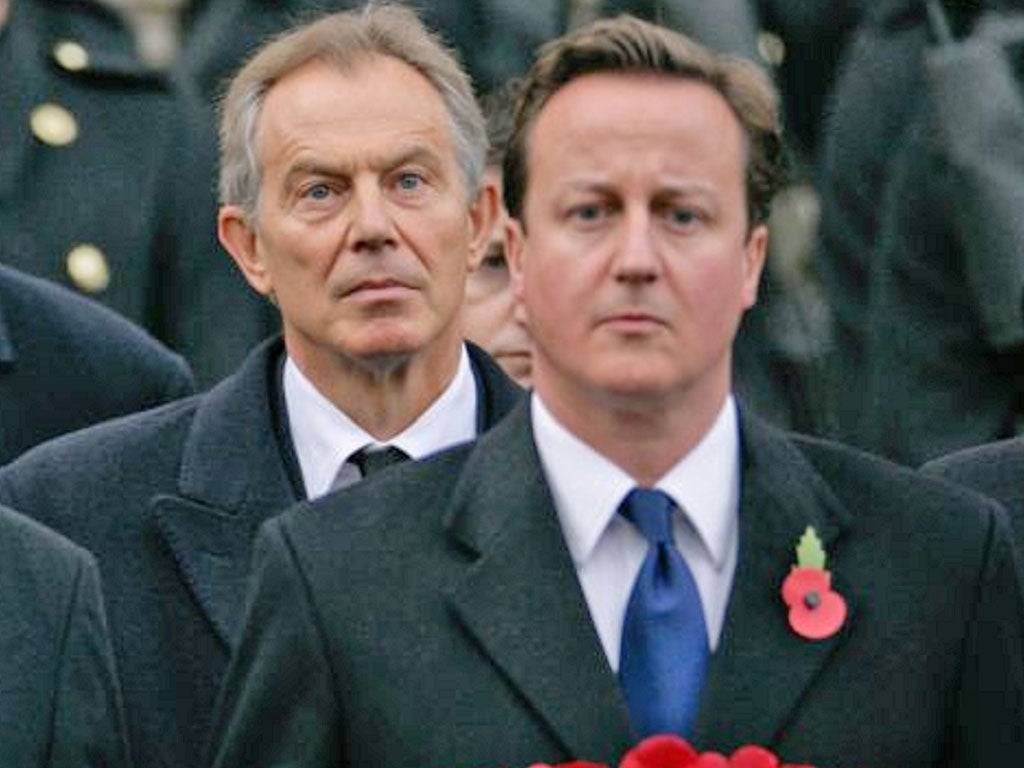Cameron banged the drums like Blair, and one Tory didn't like it
Stekch: This was a distinctly – and ambitiously – interventionist statement


Your support helps us to tell the story
From reproductive rights to climate change to Big Tech, The Independent is on the ground when the story is developing. Whether it's investigating the financials of Elon Musk's pro-Trump PAC or producing our latest documentary, 'The A Word', which shines a light on the American women fighting for reproductive rights, we know how important it is to parse out the facts from the messaging.
At such a critical moment in US history, we need reporters on the ground. Your donation allows us to keep sending journalists to speak to both sides of the story.
The Independent is trusted by Americans across the entire political spectrum. And unlike many other quality news outlets, we choose not to lock Americans out of our reporting and analysis with paywalls. We believe quality journalism should be available to everyone, paid for by those who can afford it.
Your support makes all the difference.There was a telling moment after David Cameron had given his Algeria statement in the Commons when the Conservative backbencher Julian Lewis asked him to consider the virtues of "containment" which had "served us well for 70 years in the Cold War and for 38 years in relation to Northern Ireland".
Never mind that this is a pretty rosy view of the British military presence in Northern Ireland during the Troubles. It was the clearest expression, on this most consensual of parliamentary days, of a strain of Tory unease that Cameron might have been too infected with the virus of neo-Blairite "liberal interventionism".
Sure enough, Cameron politely promised to "think carefully" about Lewis's "very intelligent point", before demolishing it. In Somalia, for example, the "effort should be to… politically, militarily, diplomatically, through aid and everything else… squeeze the terrorists out of the space. That is not containment, that is aiming over time to completely overcome them."
True Cameron's sober tone did not quite betray the "crusading zeal" attributed to him at one point by Labour's Dennis Skinner, worried that British troops would find themselves embroiled in Mali. Nor were there the rhetorical flights of Blair's famous Chicago speech or the run-up to the Iraq war. Nor, mercifully a binary division of the entire Muslim world into two "arcs" of "extremism" and "moderation".
It was nevertheless a distinctly – and ambitiously – interventionist statement, in which he repeatedly promised – without actually using the phrase – to be tough on terrorism, tough on the causes of terrorism.
He defended the intervention in Libya, and its possible unleashing of the forces at work at Mali and Algeria, saying that dictatorships provoked terrorism.
"We must frustrate the terrorists with our security," he declared. "We must beat them militarily… we must close down the ungoverned space in which they thrive and we must deal with the grievances they use to garner support." You don't as Prime Minister make a sombre Commons announcement about a hostage crisis which left among 37 hostages killed – three Britons confirmed dead and three others missing – without expecting normal inter-party hostilities to be suspended.
Ed Miliband expressed his agreement about the "unimaginable nightmare" into which the hostages at Im Amenas were plunged. Cameron agreed with him back in response. And so on.
Yet even on these predictable occasions, something political usually happens. Yesterday it was the first question asked of the PM by the former Chief Whip Andrew Mitchell since his banishment at the hands of what increasingly looks like a police conspiracy. Mitchell, who had pressed the case for aid spending in Africa, had done "excellent work" as Development Secretary.
It helped Cameron defend a controversial policy. And hint that Mitchell was on his way back. Neat.
Join our commenting forum
Join thought-provoking conversations, follow other Independent readers and see their replies
Comments